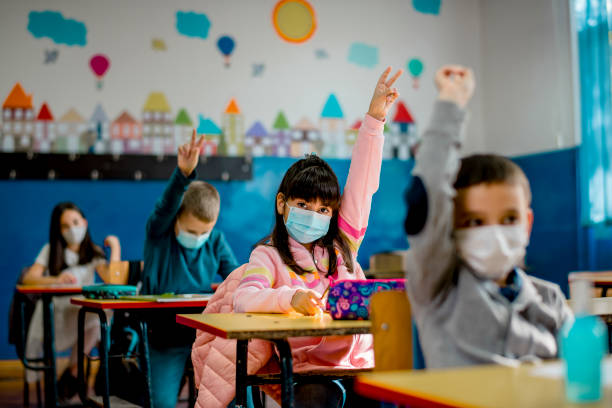When we think of Pakistan’s vibrant city of Karachi, bustling streets, a myriad of cultures, and a thriving economy often come to mind. However, beneath the city’s dynamic surface lies an equally vibrant educational landscape. In this blog post, we will delve into the world of education in Karachi, exploring its unique features, challenges, and the promising future it holds for students and educators alike.
The Educational Tapestry of Karachi
Karachi, often called the “City of Lights,” is not only Pakistan’s largest city but also its educational hub. The city boasts a vast network of educational institutions that cater to students of all ages, backgrounds, and interests.
Primary and Secondary Education:
Primary and secondary education in Karachi is facilitated through a mix of public and private schools. Public schools, managed by the Sindh government, aim to provide quality education to the masses. However, private schools also play a significant role, offering diverse curricula and extracurricular activities.
Colleges:
Karachi is home to a multitude of colleges, both government-run and private, that offer intermediate and bachelor’s degree programs. Students can pursue a wide range of subjects, from science and commerce to humanities, arts, and social sciences.
Universities: The city boasts some of Pakistan’s most prestigious universities, including the University of Karachi, Aga Khan University, and Karachi Institute of Economics and Technology (KIET). These institutions offer undergraduate, graduate, and doctoral programs, attracting students from all over the country.
Challenges in Education
While Karachi’s education scene is dynamic, it is not without its challenges.
Quality Disparities: Disparities in the quality of education exist, with some private schools offering a superior learning experience compared to public schools. This divide can perpetuate socio-economic inequalities.
Infrastructure and Resources: Many public schools lack adequate infrastructure and resources, affecting the quality of education they provide. Overcrowded classrooms, a shortage of trained teachers, and outdated textbooks are common issues.
Access to Higher Education: Despite the presence of prestigious universities, access to higher education can be challenging for many students due to limited seats and high competition.
Language Barriers: Karachi is a linguistically diverse city, and language barriers can pose challenges for students who are not proficient in Urdu or English, the primary mediums of instruction.
Initiatives and Opportunities
Despite these challenges, Karachi’s education sector is evolving, and there are several initiatives and opportunities that offer hope for the future.
Education Reforms: Efforts are underway to reform public education in Karachi. Initiatives aimed at improving infrastructure, teacher training, and curriculum development are gradually making a difference.
Scholarships and Financial Aid: Many universities and organizations provide scholarships and financial aid to deserving students, making higher education more accessible to those in need.
Tech-Driven Learning:
The city is embracing technology in education. Online platforms and e-learning resources are becoming increasingly popular, especially in the wake of the COVID-19 pandemic.
Community Involvement:
Non-governmental organizations and community-driven initiatives are working to bridge the gap in education quality. These organizations provide supplementary education, vocational training, and support for underprivileged students.
The Bright Future Ahead
Education in Karachi is at a crossroads, with a wealth of opportunities to shape a brighter future for its students. As the city continues to grow, it is essential to address the existing challenges and build a more inclusive and equitable education system.
Key stakeholders, including the government, educational institutions, and civil society, must collaborate to:
- Improve the quality of education in public schools by investing in infrastructure, teacher training, and curriculum development.
- Expand access to higher education by creating more seats and reducing barriers to entry.
- Promote bilingual education to address language barriers and ensure that students have access to quality instruction.
- Encourage the use of technology in education to enhance learning outcomes and provide remote learning options.
In conclusion, education in Karachi is a dynamic and diverse landscape that reflects the city’s multiculturalism and aspirations for a brighter future. While challenges persist, there are promising initiatives and opportunities that can propel Karachi’s education sector toward greater excellence. As we look ahead, it is essential to prioritize education as a cornerstone of Karachi’s development, ensuring that every child in this metropolis has access to quality learning opportunities.
In this journey, the collective efforts of educators, policymakers, and the community will play a pivotal role in shaping a brighter tomorrow for the students of Karachi. Together, we can illuminate the path toward a more prosperous and educated future for Pakistan’s largest city.


